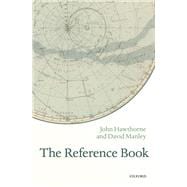
Note: Supplemental materials are not guaranteed with Rental or Used book purchases.
Purchase Benefits
What is included with this book?
| Acknowledgments | p. vii |
| Against acquaintance | |
| Introduction: reference and singular thought | p. 3 |
| Preliminaries | p. 3 |
| Themes from Russell | p. 4 |
| Reference after Russell | p. 8 |
| Singular thought after Russell | p. 15 |
| Acquaintance after Russell | p. 19 |
| Should auld acquaintance be forgot? | p. 25 |
| Gameplan | p. 35 |
| A defense of liberalism | p. 37 |
| The spy argument | p. 37 |
| Acquaintance and attitude reports | p. 40 |
| Turning the tables | p. 45 |
| Harmony, Sufficiency, and impoverished cases | p. 50 |
| 'Believing ofÆ | p. 53 |
| The Neptune argument | p. 56 |
| The irrelevance of Constraint | p. 61 |
| Sources of confusion | p. 64 |
| Conditional reference fixers | p. 68 |
| Epistemic acquaintance | p. 71 |
| Knowing-which and discrimination | p. 71 |
| Evans on acquaintance | p. 74 |
| Objections | p. 78 |
| Knowledge of existence | p. 83 |
| Understanding and knowledge | p. 85 |
| Beyond acquaintance | |
| From the specific to the singular | p. 93 |
| Indefinites: preliminary observations | p. 93 |
| Specificity: the bifurcated view | p. 99 |
| Interlude: presupposition | p. 105 |
| Specificity: the simple view | p. 107 |
| Interlude: covert domain restriction | p. 117 |
| Specificity as domain restriction | p. 122 |
| Singular restrictors | p. 133 |
| Acquaintance again | p. 136 |
| Coy and candid restrictions | p. 138 |
| Variant views | p. 141 |
| Specifics in attitude ascriptions | p. 144 |
| The representation requirement | p. 151 |
| What 'the'? | p. 155 |
| Three approaches to uniqueness | p. 155 |
| Existentialism | p. 156 |
| Exceptions to specificity? | p. 168 |
| Russellianism | p. 175 |
| Neo-Fregeanism | p. 181 |
| Three arguments for a neo-Fregean 'the' | p. 190 |
| Five arguments against a neo-Fregean 'the' | p. 196 |
| The upshot | p. 202 |
| Et tu, 'Brute'? | p. 203 |
| Demonstratives | p. 203 |
| Non-rigid uses | p. 205 |
| Salience | p. 207 |
| Modal themes | p. 211 |
| The view so far | p. 218 |
| Names | p. 219 |
| The predicate view: details | p. 221 |
| Two ineffective arguments | p. 224 |
| Calling and describing | p. 227 |
| Against the predicate view | p. 233 |
| Bare and bound? | p. 235 |
| Varieties of validity | p. 239 |
| Names: a tentative verdict | p. 241 |
| Afterword | p. 243 |
| Bibliography | p. 249 |
| Index | p. 259 |
| Table of Contents provided by Ingram. All Rights Reserved. |
The New copy of this book will include any supplemental materials advertised. Please check the title of the book to determine if it should include any access cards, study guides, lab manuals, CDs, etc.
The Used, Rental and eBook copies of this book are not guaranteed to include any supplemental materials. Typically, only the book itself is included. This is true even if the title states it includes any access cards, study guides, lab manuals, CDs, etc.